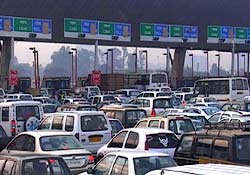
No matter how much economic development a country may have achieved, it does not necessarily guarantee that the country enjoys a truly refined and cultured society. This extremely unpleasant fact was again proved by the recent spate of racial attacks on the Indian students in Australia. Every Indian is shocked and disturbed to know about how our children are being thrashed by the raw and rustic Australian youths, simply for having the “wrong” skin colour. Ultra-outrageous! That is the only word that fittingly describes what is happening in the Kangaroo Land.
So this is the true character of the people of Australia, a country that prides itself in being in the league of the so-called “developed nations”? On one hand the Australians are so proud of the economic status of their “first world country”, and the high quality of life that they enjoy. And on the other hand they are so narrow-minded that they cannot accept a foreigner as their equal, simply because that person does not have the “correct” ethnicity and skin colour.
Actually there is nothing surprising about this rustic mentality of the Australians. The nature of a nation is mainly shaped by its origin, i.e. the types of forefathers it had. Australians might be proud that today they are a developed nation. But what is their origin? A huge chunk of their forefathers were criminals and anti-socials from England, who were banished by the English government to Australia (which was then a penal island). Another major chunk of their forefathers was constituted of the illiterate (and naturally uncultured) gold prospectors from various parts of Europe. With such a “genealogy”, it is little surprising that Australians have such an uncultured and ruffian attitude. In fact, rudeness is seemingly part and parcel of the Australian life. A case in point is the on-the-field behaviour of the Australian cricketers, the ones “credited” with the import of “sledging culture” in the “Gentleman’s game”.
It is heartening to see that the Indian government has already launched a strong protest with its Australian counterpart. The latter must be pursued not only to save the Indian students from further racial attacks, but also to take strict action against the culprits of the racial attacks that have taken place so far.
The Indian government is also well advised to bar the Australian universities from holding promotional and marketing campaigns in India, aimed at Indian students eyeing foreign education. India is today a very lucrative market for the education sectors of all the developed countries – the USA, the UK, Australia, Singapore, etc. The moment the Australian education sector will find itself on the verge of losing a huge market, it will create immense pressure on its government to take corrective measures.
The West is never tired of criticizing the various draw backs that the Indian society suffers from – caste system, communal divide, dowry system, etc. All these are certainly disgraceful, and we, the educated Indians, are always keen to shed them off. But has West ever realized that the social disease that it suffers from – the racial prejudice and bias – is as shameful as the social diseases that we have? Rather, in India we are at least aware of the deplorability of those social problems. But our friends in the West seem to be even lacking this realization in the first place.
Photo Courtesy - www.theage.com.au


